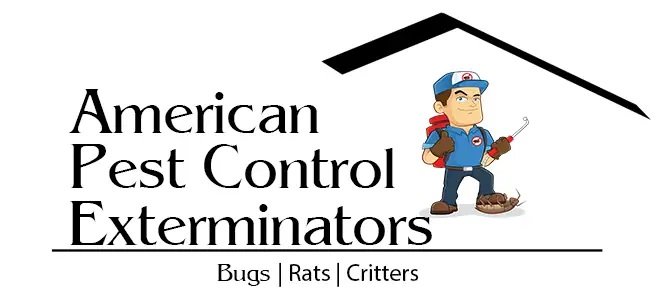
The Myths and Misconceptions of Rodent Control: Separating Fact from Fiction
When it comes to controlling rodents, there are many myths and misconceptions that can cause confusion. Some people believe that traps and poisons are the only way to get rid of pest rodents, but this is far from the truth. There are many options for effective rodent control, and understanding these techniques can help you make an informed decision about what will work best for your situation. In this blog post, we will explore the myths and misconceptions of rodent control and help you separate fact from fiction so that you can make a wise decision on how to manage your rodent problem.
What are the most common myths about rodents?
There are many myths and misconceptions about rodents and rodent control. Some people believe that rodents are dirty animals that carry disease, when in fact they are relatively clean animals that can be found in both rural and urban areas. Other common myths about rodents include:
1. Rodents are afraid of cats and dogs: In reality, rodents are not afraid of cats and dogs, and may even coexist with them in the same environment.
2. Rodents only come out at night: While it is true that rodents are more active at night, they can also be active during the day.
3. All rodents carry diseases: While some rodents can carry diseases, not all do. The best way to prevent contracting a disease from a rodent is to avoid contact with them altogether.
4. Rodent poisons are the only way to get rid of them: While using rodenticides can be effective in controlling rodent populations, it is not the only way. There are a variety of humane and non-toxic methods of controlling rodents that can be used.
5. Rodents can only be found in dirty environments: Rodents are actually quite adaptable and can live in a variety of environments, including very clean ones.
6. Rodents can reproduce quickly: Rodents typically have a slow reproductive rate, so it may take some time before their population grows significantly.
7. Rodents can fit through small holes: While rodents can fit through very small openings, they typically need larger openings to gain access to a home or building.
8. Rodents can transmit rabies: While some rodents can carry rabies, the risk of humans contracting the disease from them is very low.
9. Rodents are destructive: While rodents can be destructive, they typically only cause damage when looking for food or shelter.
10. Rodents cannot be controlled: With the right approach and techniques, rodent populations can be effectively managed and controlled.
What are the facts about rodents?
There are many misconceptions about rodents and rodent control. Some people believe that all rodents are dirty and carry diseases, when in fact, only a small percentage of rodents are actually carriers of disease. Other people believe that rats and mice are attracted to garbage and other forms of filth, when in reality, they are simply looking for food and shelter. Here are some facts about rodents:
1. Rats and mice are not dirty animals. In fact, they are quite clean and groom themselves regularly.
2. A small percentage of rodents (less than 1%) carry diseases that can be transmitted to humans. These diseases include bubonic plague, leptospirosis, hantavirus, and salmonellosis.
3. Rats and mice are attracted to food sources and places where they can find shelter. They are not attracted to garbage or filth.
4. Rats and mice reproduce quickly. A female rat can have up to 12 litters per year, with each litter consisting of 6-12 baby rats. A mouse can have up to 10 litters per year, with each litter consisting of 3-6 baby mice.
5. Rodent control is best achieved through the use of traps, exclusion methods (sealing up entry points), and baiting.
6. Rodents can cause damage to your home, including chewing through wires and other materials.
7. Rodents can contaminate food and spread disease to humans and pets if they are not properly controlled.
8. Rodents have a strong sense of smell and taste, and can be deterred from an area by using unpleasant smells, such as ammonia or peppermint oil.
9. Rodents are nocturnal, meaning they are most active at night.
10. Rodents can enter your home through very small openings, such as cracks in the foundation or holes in the walls and floors.
What are the best ways to control rodents?
One of the best ways to control rodents is to eliminate their food sources. This can be done by sealing up any cracks or holes in your home that may give them access to your food. You should also keep your food in airtight containers and clean up any crumbs or spills immediately. If you have a pet, make sure to keep its food bowl clean and free of scraps.
another good way to control rodents is to remove anything in your yard that might provide them shelter. This includes piles of lumber, leaves, or debris. If you have a bird feeder, make sure it is kept clean and free of spilled seed. You should also trim back any trees or bushes that are close to your home, as these can provide hiding places for rodents.
finally, you can use traps or bait stations to catch and kill rodents. Be sure to read the instructions carefully before using any products, as some can be dangerous if used improperly. If you have children or pets, be sure to choose a product that will not put them at risk.
What are some natural methods of rodent control?
There are many ways to control rodents without using harmful chemicals. Some of these methods include:
– Trapping: This is one of the most common and effective methods of rodent control. There are many different types of traps available, so be sure to choose one that is best suited for the type of rodent you are trying to catch.
– Baiting: This involves placing food in an area where rodents are known to frequent. The bait will attract the rodents, who will then be caught in a trap or killed by a predator.
– Exclusion: This involves sealing up any cracks or holes that rodents could use to enter your home or business. By doing this, you will prevent them from being able to get inside in the first place.
– Repellents: There are many different types of repellents available on the market today. These products work by emitting a scent that rats and mice find unpleasant, causing them to avoid the area altogether.
What should you do if you have a rodent problem?
If you have a rodent problem, the best thing to do is to call a professional pest control company. They will be able to identify the type of rodent you have and put together a plan to get rid of them. If you try to do it yourself, you may end up making the problem worse.
Conclusion
Rodent control can be an effective way to protect your property from the health and safety risks posed by rodents. However, there are a variety of myths and misconceptions about rodent control that can lead people to make poor choices when attempting to address their infestation. By understanding the facts about rodent control, you can separate fact from fiction and make better decisions for dealing with any existing or future infestations in order to keep your family safe.

